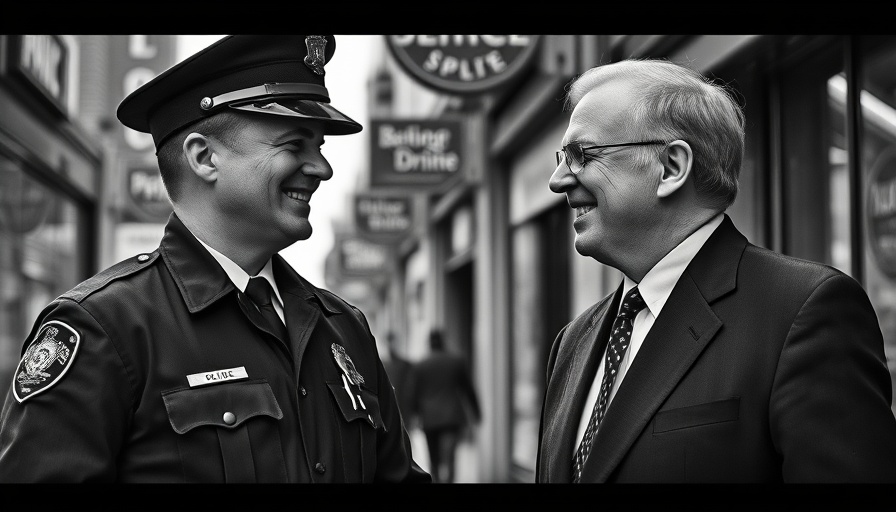
Remembering a Literary Pioneer of Law Enforcement
The legacy of Joseph Wambaugh, who passed away on February 28, 2025, extends far beyond his bestselling novels and into the cultural and professional fabric of law enforcement. Known for his willingness to present a nuanced portrayal of police work, Wambaugh has inspired both officers and civilians alike to understand the complexities of the job. His stories from within the LAPD humanized the badge, moving past mere caricatures of cop-and-robber narratives.
The Shift from Cop to Author: An Insider's Perspective
Wambaugh, a former LAPD detective sergeant, became one of the first in law enforcement to achieve major literary success. His career began amidst the chaos of the 1960s, a time of social upheaval affecting perceptions of policing and public safety. Books like The New Centurions and The Blue Knight not only explored the day-to-day challenges faced by officers but also questioned the narratives surrounding authority and policing ethics.
Challenges of Balancing Duty and Creativity
The intersection of Wambaugh's literary aspirations with his police duties represented a juxtaposition seldom visible in the public domain. His rise as a writer brought about unwanted fame, complicating his duties on the force. Imagine the frustration of receiving bogus calls from aspiring actors looking for roles. As he reflected, the very career that inspired his art ultimately curtailed his time in uniform.
The Bifurcation of Public Perception
While many current police officers may not be familiar with Wambaugh’s work, his influence is palpable in how the society perceives law enforcement today. Artists and authors directly impact community trust, often shaping the dialogue surrounding police reform and accountability. Given Wambaugh's commitment to portraying cops with respect, his narrative pushed back against the tide of overwhelming negativity often directed at law enforcement. In a world rife with calls for police accountability and community engagement, Wambaugh's stories can inspire new perspectives on the ethics of policing.
Wambaugh’s Lasting Impact on Modern Policing
Current policing strategies must navigate an intricate landscape of community engagement and public trust. Wambaugh's discussions around the stress and responsibilities of police work can guide the development of officer wellness programs and ethical training standards in law enforcement. His portrayal of policing shines a light on mental health initiatives for officers—fostering resilience is essential in any public safety tech integration.
Concluding Thoughts: Honoring a Trailblazer
As Wambaugh’s works continue to shape narratives surrounding policing, there’s an undeniable call for a renewed focus on community-driven transparency and accountability. Policymakers and law enforcement agencies are encouraged to leverage advanced policing technologies and reform strategies to improve public engagement.
In memory of Joseph Wambaugh, it is incumbent upon us to remember not just his contributions but to utilize his insights to craft policies that bridge the gaps between communities and the police. Let us honor him by committing to increase trust metrics in law enforcement practices, emphasizing the pivotal role of narrative in shaping effective policing.
 Add Row
Add Row  Add
Add 

 Add Element
Add Element  Add Row
Add Row 




Write A Comment